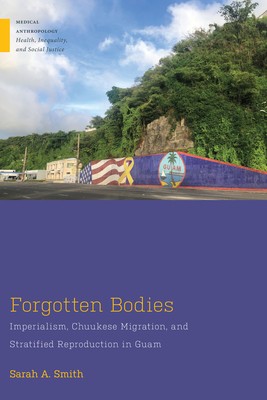
- We will send in 10–14 business days.
- Author: Sarah A Smith
- Publisher: Rutgers University Press
- ISBN-10: 1978832605
- ISBN-13: 9781978832602
- Format: 15.5 x 22.9 x 0.7 cm, softcover
- Language: English
- SAVE -10% with code: EXTRA
Reviews
Description
Women from Chuuk, Federated States of Micronesia who migrate to Guam, a U.S. territory, suffer disproportionately poor reproductive health outcomes. Though their access to the United States is uniquely easy, through a unique migration agreement, it keeps them in a perpetual liminal state as nonimmigrants, who never fully belong as part of the U.S. Chuukese women move to Guam, sometimes with their families, but sometimes alone, in search of a better life: for jobs, the education system, or to access safe health care. Yet, the imperial system they encounter creates underlying conditions that greatly and disproportionately impact their ability to succeed and thrive, negatively impacting their reproductive health. Through clinical and community ethnography, Sarah A. Smith illuminates the way this system stratifies women's reproduction at structural, social, and individual levels. Readers can visualize how U.S. imperialist policies of benign neglect control the body politic, change the social body, and render individual bodies vulnerable in the twenty-first century, but also, how people resist.
EXTRA 10 % discount with code: EXTRA
The promotion ends in 20d.14:47:16
The discount code is valid when purchasing from 10 €. Discounts do not stack.
- Author: Sarah A Smith
- Publisher: Rutgers University Press
- ISBN-10: 1978832605
- ISBN-13: 9781978832602
- Format: 15.5 x 22.9 x 0.7 cm, softcover
- Language: English English
Women from Chuuk, Federated States of Micronesia who migrate to Guam, a U.S. territory, suffer disproportionately poor reproductive health outcomes. Though their access to the United States is uniquely easy, through a unique migration agreement, it keeps them in a perpetual liminal state as nonimmigrants, who never fully belong as part of the U.S. Chuukese women move to Guam, sometimes with their families, but sometimes alone, in search of a better life: for jobs, the education system, or to access safe health care. Yet, the imperial system they encounter creates underlying conditions that greatly and disproportionately impact their ability to succeed and thrive, negatively impacting their reproductive health. Through clinical and community ethnography, Sarah A. Smith illuminates the way this system stratifies women's reproduction at structural, social, and individual levels. Readers can visualize how U.S. imperialist policies of benign neglect control the body politic, change the social body, and render individual bodies vulnerable in the twenty-first century, but also, how people resist.


Reviews